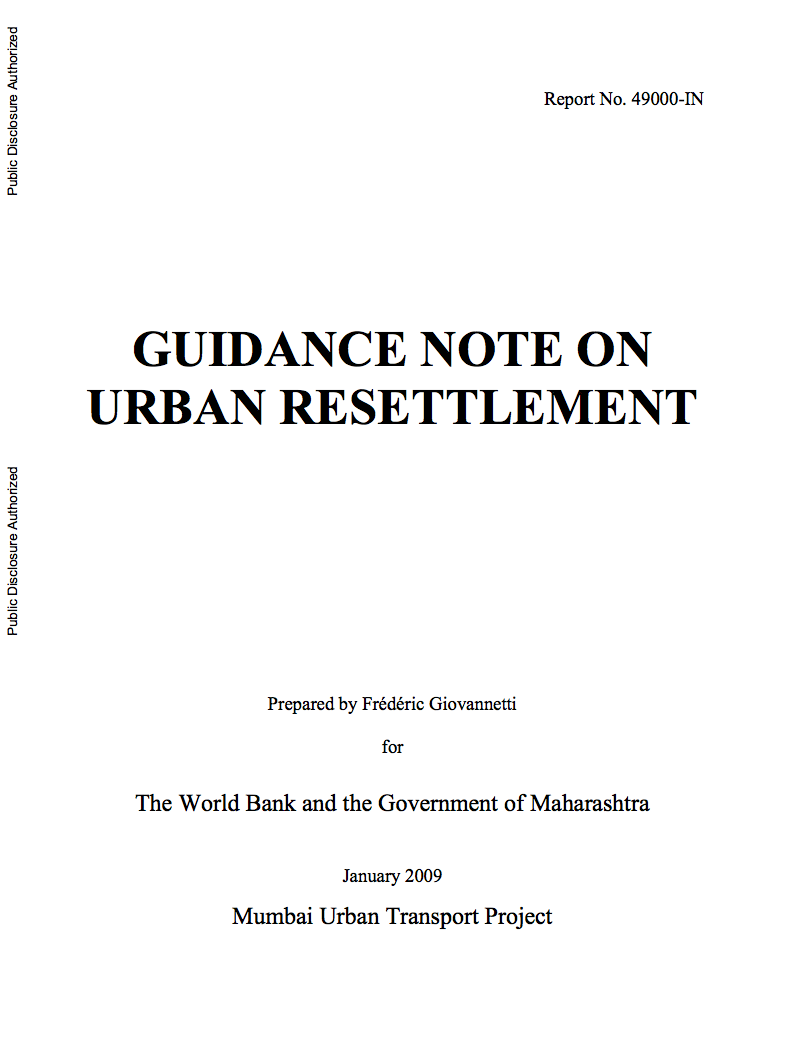The World Bank is a vital source of financial and technical assistance to developing countries around the world. We are not a bank in the ordinary sense but a unique partnership to reduce poverty and support development. The World Bank Group has two ambitious goals: End extreme poverty within a generation and boost shared prosperity.
- To end extreme poverty, the Bank's goal is to decrease the percentage of people living on less than $1.25 a day to no more than 3% by 2030.
- To promote shared prosperity, the goal is to promote income growth of the bottom 40% of the population in each country.
The World Bank Group comprises five institutions managed by their member countries.
The World Bank Group and Land: Working to protect the rights of existing land users and to help secure benefits for smallholder farmers
The World Bank (IBRD and IDA) interacts primarily with governments to increase agricultural productivity, strengthen land tenure policies and improve land governance. More than 90% of the World Bank’s agriculture portfolio focuses on the productivity and access to markets by small holder farmers. Ten percent of our projects focus on the governance of land tenure.
Similarly, investments by the International Finance Corporation (IFC), the World Bank Group’s private sector arm, including those in larger scale enterprises, overwhelmingly support smallholder farmers through improved access to finance, inputs and markets, and as direct suppliers. IFC invests in environmentally and socially sustainable private enterprises in all parts of the value chain (inputs such as irrigation and fertilizers, primary production, processing, transport and storage, traders, and risk management facilities including weather/crop insurance, warehouse financing, etc
For more information, visit the World Bank Group and land and food security (https://www.worldbank.org/en/topic/agriculture/brief/land-and-food-security1
Resources
Displaying 4161 - 4165 of 4907Welfare Impacts of Rural Electrification : A Case Study from Bangladesh
Lack of access to electricity is one of
the major impediments to growth and development of the rural
economies in developing countries. That is why access to
modern energy, in particular to electricity, has been one of
the priority themes of the World Bank and other development
organizations. Using a cross-sectional survey conducted in
2005 of some 20,000 households in rural Bangladesh, this
paper studies the welfare impacts of households' grid
Poverty and Income Seasonality in Bangladesh
Seasonal poverty in Bangladesh, locally
known as monga, refers to seasonal deprivation of food
during the pre-harvest season of Aman rice. An analysis of
household income and expenditure survey data shows that
average household income and consumption are much lower
during monga season than in other seasons, and that seasonal
income greatly influences seasonal consumption. However,
lack of income and consumption smoothing is more acute in
Who Survives? The Impact of Corruption, Competition and Property Rights across Firms
Size, age, sector, and productivity are
commonly cited as factors determining a firm s survival.
However, there are several dimensions of the investment
climate in which the firm operates that affect whether it
continues in business or exits. This paper uses new panel
data from 27 Eastern European and Central Asian countries to
test the importance of five areas of the business climate on
firm exit: the efficiency of government services, access to
Distortions to Agricultural
Incentives in Asia
This study is part of a global research
project seeking to understand the changing scope and impact
of the policy bias against agriculture and the reasons
behind agricultural policy reforms in Africa, Europe's
transition economies, Latin America and the Caribbean, and
Asia. One purpose of the project is to obtain quantitative
indicators of the effects of recent policy interventions. A
second objective is to gain a deeper understanding of the
India - Mumbai Urban Transport Project : Guidance Note on Urban Resettlement
The purpose of this guidance note is to
bridge precisely identify how to implement World Bank
resettlement policies in the context of infrastructure
projects affecting South Asian largest cities, with a focus
on the impacts on poor areas and slums. The guidance note is
intended as a tool to help decision makers in Government
agencies and in the Bank, particularly in respect of the
main aspects: 1) methods to assess and evaluate resettlement







